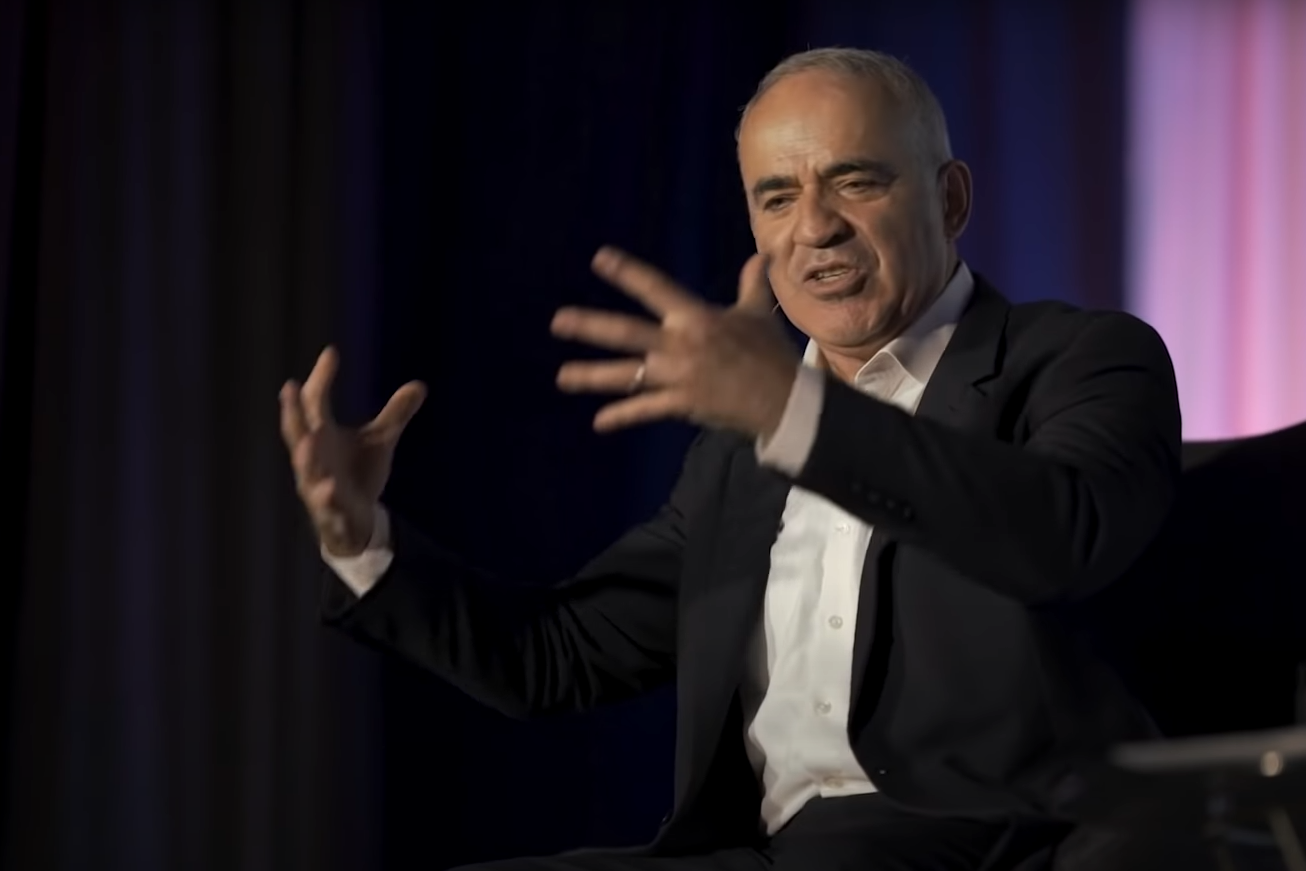


Master Class Vol.7: Garry Kasparov
Inigualable compendio de la carrera ajedrecística del XIII Campeón del Mundo, con 9 horas de vídeo, entre otras muchas exquisiteces.
Kasparov: "Sabemos que la verdad existe, pero únicamente hay una sola manera para expresarla. Gracias a los medios sociales, hay millones posibilidades para mentir. La verdad es íngrima, pero tenemos la obligación de encontrar la manera para defenderla".
16 years after he officially retired from professional chess, Garry Kasparov has remained active and relevant, from political activist, to auteur extraordinaire, with a fantastic body of contributions to chess literature, and further books on themes such as business and AI. You would think that with this many works compounded by his regular articles and interviews (Bill Mahar, anyone?), that we had seen it all and heard it all, yet in a recent interview done on the YouTube channel, Valuetainment, he showed that he still had insights to share and inspire.
Don't be put off by the length, since frankly one is left wanting more, a feeling that was echoed by others in the video's comments section.

Here are a few highlights (edited for clarity and conciseness):
(15:37) I started Kasparov Chess Foundation in this country 20 years ago, and from 2005 we have regular sessions with talented kids (...) and more and more I can see how their play is influenced so much by machines, and it's good that they can collect all the data. Today the kid at age 12 knows more than Bobby Fischer learned in his entire life again simply because he or she can swipe the finger [miming using an iPad] and just find all the data.
But again how you deal with this data, (...) because when we analyze the games I look at them and say, "Okay here's a move. It's not a good move so why?" The junior will reply, "it's not a good move because the machine said so." I insist, "I can also look at the screen. Can you tell me why?" and many of them stared at me, confused. "What do you mean why? because the machine said so." So sometimes they lose this the ability, the very human ability, to look deep down and understand what it's all about.

Kasparov hablando con grandes gestos | Foto: caputura del vídeo de Valuetainment
(42:14) "Taking risks is risky yet not taking risks is much riskier. (...) For so long the philosophy of business was to mitigate risk, how to reduce it. Once i did an experiment: you can use a Google engram and you can look at the books for 100 years and find out how certain words have been used and (...) and it shows the change in the public attitude. You put the word 'computer' and it goes up and down, then you query the word 'phone', and so 'phone' goes up and then a little bit down. There's only one word that I found that that didn't follow this pattern, it's called 'risk'. Until the mid to late 60s it was almost non-existent and then it jumped exponentially. We 'discovered' risk and we wanted to mitigate this risk, we wanted to handle it, we want to minimize it, forgetting the fact that if you minimize risk you also have to sacrifice benefits."
(48:51) The problem with Americans is that you take things for granted. You keep forgetting the wise words of Ronald Reagan from his inaugural speech in 1967 when he became governor of California that freedom is a fragile thing and it's never more than one generation away from extinction. (...)
There's no perfection in this world but you compare this country to any other place on the planet you will not find a place that offers more opportunities for people of all races and genders. (...) That's why people like me are so concerned when self-criticism turns into self-flagellation. (...) These attacks on the very foundation of this great nation are what help dictators in Russia, in China, in Iran.

Foto: caputura del vídeo de Valuetainment
(1:09:26) We know that truth does exist, but there's only one way to tell the truth, and there are millions of ways thanks to social media to lie. Truth is lonely and we have to find ways to defend it.
While these do bring up some salient highlights, don't for an instant think this is all there was. His comparison of different strengths as illustrated by two very different armies was as eloquent a comparison as can be.
How I became World Champion Vol.1 1973-1985
Autobiografía profesional del mayor genio del ajedrez de todos los tiempos a través del análisis de sus propias partidas. Desde sus más tiernos comienzos. Descubra el mito desde su origen.
| Anuncio |